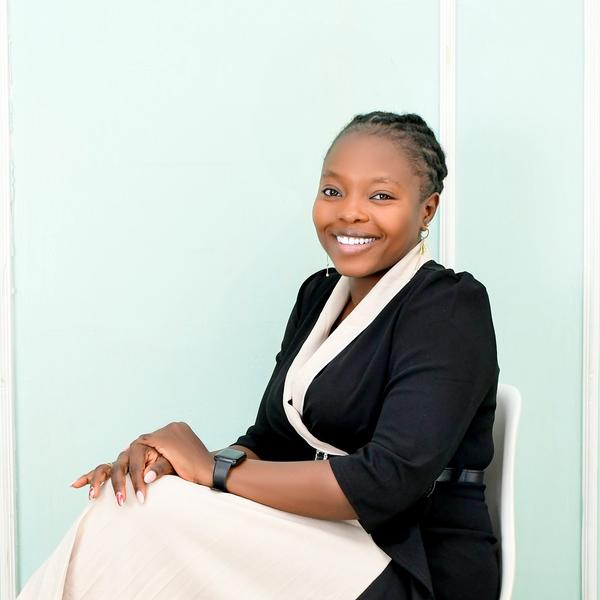Kauna Malgwi

Introduction
Kauna Malgwi is a clinical psychologist and mental health advocate. Her experience spans across mental health, AI and ethics. She is the founder of the Digital Rights and Mental Health Initiative. Kauna is a labor organizer and a leading voice in the emerging African Content Moderator Union, advocating for the rights of digital workers in Kenya and Nigeria. She has championed labor rights on global platforms, including a speaking engagement at the European Parliament. Recognized in Time's magazine's list of 100 most influential people in AI, Kauna is a passionate advocate for ethical AI, human rights, and mental health.
Interview
Your transition from clinical psychology to leading a movement for content moderators is fascinating. What inspired this shift, and was there a particular moment that made you realize this was your calling?
I started content moderation in 2019 for Facebook through Sama. It’s been a bittersweet journey because content moderation is a very noble job - I’ve never regretted doing it. But it opened my eyes to how invisible the workers are. People don’t realize there are actual human beings behind these platforms, cleaning them, reviewing and sanitizing content to keep digital spaces safe.
While I was doing my master’s in Nairobi, I started seeing the toll it took on moderators’ mental health. That’s when I knew I couldn’t just be a psychologist in a clinic - I needed to advocate for the people holding up these digital spaces.
Content moderation is crucial for safe digital spaces, yet the people behind it remain unseen. What do you wish more people understood about the realities of this work?
I wish people understood that it’s not just a job-it’s a burden we carry for society. Every day you’re exposed to the worst parts of the internet, and yet you’re expected to move on as if nothing happened. It’s hidden labor by design. Companies keep it out of sight so users never have to think about the people absorbing that trauma behind the screen.
As a leading advocate for ethical AI and human rights, what’s one change you believe AI companies must make today to protect workers and build more responsible AI systems?
Transparency is non-negotiable. Companies need to stop hiding behind algorithms and acknowledge the human cost of their systems. Protecting workers means fair contracts, mental health support, and actually listening to the people on the ground who know what’s happening in these spaces.
The mental health impact of content moderation is often overlooked. What steps should companies and society take to better support moderators’ well-being?
It can’t just be counseling hotlines. We need systemic change: embedded mental health professionals, mandatory debriefing sessions, rotating workloads. Right now companies patch holes instead of restructuring. It’s not sustainable, and it’s not humane.
African women are making incredible strides in AI and tech. What unique perspectives do women bring to this space, and what can we do to support more of them stepping into leadership roles?
African women bring resilience, empathy, and a deep understanding of context. That’s something tech desperately needs. But we also need access - to resources, to mentorship, and to rooms where decisions are made. Empowering women means dismantling barriers and creating spaces where our voices actually shape the future.
Building strong communities has been a key part of your advocacy. What have you learned about the power of collaboration, and how can we strengthen networks that support African women in tech?
Change doesn’t happen in isolation. The biggest lesson is to listen deeply and center the people most affected. Community work takes consistency and humility - it’s about building trust and showing up over and over again.
What excites you most about the future of content moderation and ethical AI? Are there specific areas where you’re seeing progress or hope for meaningful change?
Workers are starting to speak up. Policies are being challenged. There’s more critical awareness of AI than there was a few years ago. That collective momentum gives me hope , it means people are paying attention and pushing for accountability.
Mentorship is a game-changer for women in tech. Has mentorship played a role in your journey, and what’s one piece of advice that has stayed with you?
Mentorship has been huge for me. One piece of advice I carry is: ‘You don’t have to be loud to be heard just be intentional.’ That’s shaped how I show up in spaces and how I advocate for others.
For those reading this who want to take action, what’s one simple but impactful step they can take today to support content moderators and advocate for ethical AI?
Ask questions. Whether you’re inside a company or just a user of a platform - demand to know who's moderating and how they’re treated. Advocacy doesn’t have to be grand; small, intentional actions create change.